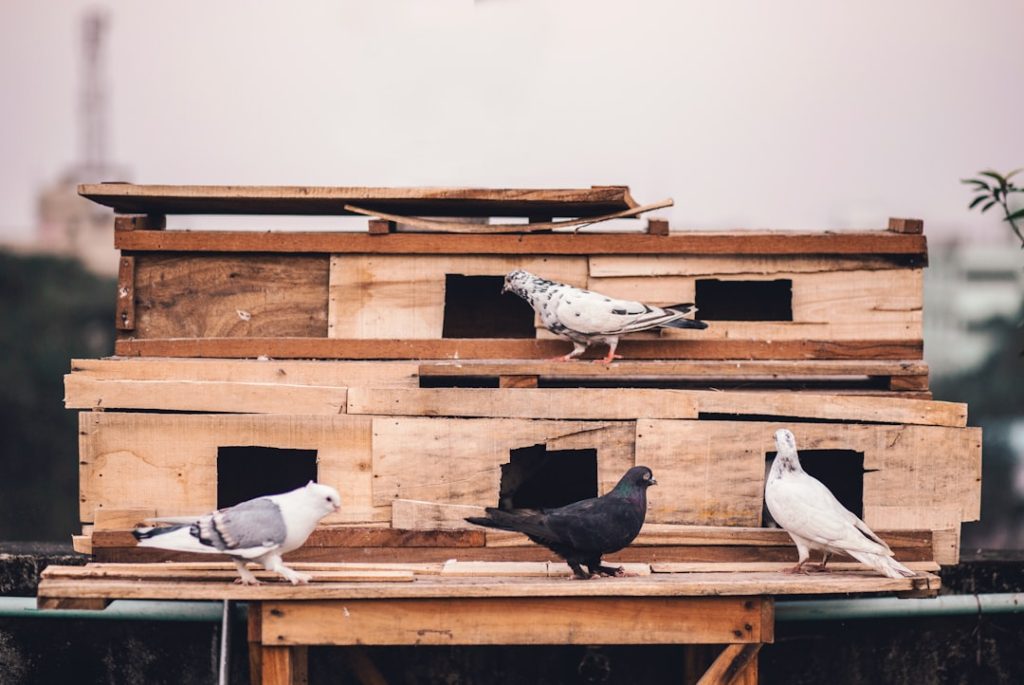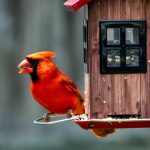Heat stress poses a significant threat to chickens due to their high sensitivity to elevated temperatures. Exposure to extreme heat can lead to various adverse effects on chicken health and welfare. Common consequences of heat stress in chickens include dehydration, decreased egg production, reduced feed consumption, and potential mortality in severe cases.
Chickens lack sweat glands and rely on panting and wing-spreading to regulate their body temperature. When ambient temperatures exceed certain thresholds, chickens may struggle to cool themselves effectively, resulting in heat stress. Heat stress not only causes physical discomfort and health issues but also significantly impacts flock productivity.
Reduced egg production and stunted growth in young birds can lead to financial losses for poultry farmers. It is essential for chicken owners to understand heat stress risks and implement preventive measures. Effective strategies include ensuring proper ventilation, providing shade and cooling options, maintaining access to fresh water, and monitoring for heat stress symptoms.
By taking these precautions, chicken owners can help maintain the health, comfort, and productivity of their flocks during hot weather conditions.
Table of Contents
- 1 Providing Proper Ventilation in the Coop
- 2 Offering Shade and Cooling Options in the Chicken Run
- 3 Ensuring Access to Fresh, Cool Water at All Times
- 4 Adjusting Feeding Times and Types of Feed
- 5 Monitoring and Managing Heat Stress Symptoms
- 6 Implementing Additional Measures to Keep Chickens Cool
- 7 FAQs
- 7.1 What are some ways to keep chickens cool in the summer?
- 7.2 Why is it important to keep chickens cool in the summer?
- 7.3 How can I provide shade for my chickens in the summer?
- 7.4 What are some signs of heat stress in chickens?
- 7.5 Should I use misters or fans to cool my chickens?
- 7.6 How often should I change the water for my chickens in the summer?
Key Takeaways
- Heat stress in chickens can lead to decreased egg production, poor growth, and even death.
- Proper ventilation in the coop is essential to prevent heat buildup and maintain air quality.
- Providing shade and cooling options in the chicken run, such as trees or misters, can help chickens regulate their body temperature.
- Access to fresh, cool water at all times is crucial for chickens to stay hydrated and cool during hot weather.
- Adjusting feeding times and types of feed can help reduce heat production in chickens’ bodies and aid in digestion.
- Monitoring and managing heat stress symptoms, such as panting and lethargy, is important for early intervention.
- Implementing additional measures, such as using fans or wetting the ground, can further help keep chickens cool during extreme heat.
Providing Proper Ventilation in the Coop
Installing Ventilation Systems
To ensure proper ventilation, chicken owners should consider installing windows, vents, and fans in the coop to promote air circulation and cooling. In addition to promoting air exchange, proper ventilation can also help to reduce the buildup of harmful gases such as carbon dioxide and ammonia, which can be detrimental to the health of the chickens.
Benefits of Proper Ventilation
By maintaining good airflow and ventilation in the coop, chicken owners can create a more comfortable and healthy environment for their birds, reducing the risk of heat stress and other respiratory issues. Proper ventilation can also help to reduce the buildup of harmful gases, promoting a healthier living space for the chickens.
Maintenance and Inspection
It is essential to regularly inspect and clean ventilation openings to ensure that they are free from obstructions and functioning effectively. By prioritizing proper ventilation in the coop, chicken owners can help their birds stay cool and comfortable during hot weather.
Offering Shade and Cooling Options in the Chicken Run

In addition to providing proper ventilation in the coop, it is important to offer shade and cooling options in the chicken run to help chickens beat the heat. Direct exposure to sunlight can significantly increase the ambient temperature in the chicken run, making it uncomfortable for the birds. Providing ample shade in the form of trees, shrubs, or shade cloth can help to create cooler areas where chickens can seek relief from the sun.
Additionally, setting up misters or sprinklers in the chicken run can provide a cooling effect, helping to lower the ambient temperature and keep the birds comfortable. Another effective way to cool down the chicken run is by placing shallow containers of water or even kiddie pools for the chickens to wade in. This not only provides a source of hydration but also allows the birds to cool off by standing or sitting in the water.
Offering various cooling options in the chicken run gives the birds the opportunity to regulate their body temperature and avoid heat stress during hot weather. By creating a comfortable and shaded outdoor space for the chickens, chicken owners can help their birds stay cool and healthy even in high temperatures.
Ensuring Access to Fresh, Cool Water at All Times
Access to fresh, cool water is crucial for preventing heat stress in chickens. During hot weather, chickens can become dehydrated quickly, especially if they are panting excessively to cool themselves down. Dehydration can lead to a range of health issues and increase the risk of heat stress for the birds.
To prevent dehydration, it is essential to ensure that chickens have continuous access to clean, cool water throughout the day. This may involve providing multiple water sources in the coop and chicken run to accommodate the needs of all birds in the flock. In addition to ensuring access to water, chicken owners should take steps to keep the water cool and refreshing for the birds.
This can be achieved by placing water containers in shaded areas or using insulated waterers to prevent them from heating up in direct sunlight. Adding ice cubes or frozen water bottles to the water containers can also help to maintain a cooler temperature for longer periods. By prioritizing access to fresh, cool water, chicken owners can help their birds stay hydrated and reduce the risk of heat stress during hot weather.
Adjusting Feeding Times and Types of Feed
During periods of extreme heat, it may be necessary to adjust feeding times and types of feed to help chickens cope with high temperatures. Feeding chickens during the cooler parts of the day, such as early morning or late evening, can help to reduce heat production from digestion and minimize the impact of hot weather on their metabolism. Additionally, offering smaller, more frequent meals throughout the day can help to prevent excessive heat generation from large meals.
In terms of feed types, switching to lighter formulations or feeds with higher moisture content can be beneficial during hot weather. Feeds with higher moisture content can help to keep chickens hydrated and reduce the risk of dehydration. Additionally, avoiding feeds that are high in protein or energy-dense during extreme heat can help to minimize metabolic heat production in chickens.
By adjusting feeding times and types of feed, chicken owners can help their birds maintain a more comfortable body temperature and reduce the risk of heat stress during hot weather.
Monitoring and Managing Heat Stress Symptoms

Recognizing the Signs of Heat Stress
Chicken owners must be vigilant in monitoring their birds for symptoms of heat stress, taking prompt action to manage them. Common signs of heat stress in chickens include panting, lethargy, reduced feed intake, drooping wings, and pale combs and wattles. If any of these symptoms are observed, it is crucial to take immediate steps to help the affected birds cool down and recover from heat stress.
Providing Relief from Heat Stress
One effective way to manage heat stress symptoms is by moving affected birds to a cooler, shaded area with access to fresh water. Placing cool packs or frozen water bottles near the birds can also help to lower their body temperature and provide relief from heat stress. Additionally, gently misting or spraying the birds with cool water can help them cool down quickly.
Ongoing Care and Monitoring
It is important to closely monitor affected birds and provide ongoing care until they show signs of improvement. By promptly identifying and managing heat stress symptoms, chicken owners can help their birds recover from heat stress and prevent more serious health issues from developing.
Implementing Additional Measures to Keep Chickens Cool
In addition to the aforementioned strategies for preventing heat stress in chickens, there are several additional measures that chicken owners can implement to keep their birds cool during hot weather. One effective approach is to provide frozen treats or ice blocks for the chickens to peck at, which can help them stay hydrated and cool down. Another option is to create natural cooling areas by planting shade trees or installing awnings over parts of the chicken run.
Furthermore, using reflective materials on coop roofs or run covers can help to reduce heat absorption and keep the living spaces cooler for the birds. Implementing these additional measures can provide extra support for preventing heat stress in chickens and creating a more comfortable environment for them during hot weather. By combining multiple strategies and being proactive about keeping chickens cool, chicken owners can help their birds stay healthy and thriving even in high temperatures.
In conclusion, understanding the risks of heat stress in chickens is crucial for ensuring their health and well-being during hot weather. By providing proper ventilation in the coop, offering shade and cooling options in the chicken run, ensuring access to fresh water at all times, adjusting feeding times and types of feed, monitoring for symptoms of heat stress, and implementing additional measures to keep chickens cool, chicken owners can effectively prevent heat stress and create a comfortable living environment for their birds. Prioritizing these strategies will not only help chickens stay healthy but also contribute to maintaining a productive and thriving flock.
If you’re looking for ways to keep your chickens cool in the summer, you might want to check out this article on how to insulate a chicken coop. Insulating your coop can help regulate the temperature and keep your chickens comfortable during the hot summer months.
FAQs
What are some ways to keep chickens cool in the summer?
Some ways to keep chickens cool in the summer include providing shade, ensuring proper ventilation in the coop, offering cool water for drinking, and using misters or fans to lower the temperature.
Why is it important to keep chickens cool in the summer?
Chickens are susceptible to heat stress, which can lead to decreased egg production, health issues, and even death. Keeping chickens cool in the summer is important for their well-being and productivity.
How can I provide shade for my chickens in the summer?
You can provide shade for your chickens by using natural shade from trees or shrubs, setting up tarps or umbrellas in the chicken run, or creating a shaded area within the coop itself.
What are some signs of heat stress in chickens?
Signs of heat stress in chickens include panting, lethargy, decreased egg production, pale combs and wattles, and in severe cases, convulsions or death. It’s important to take action if you notice these signs in your chickens.
Should I use misters or fans to cool my chickens?
Misters and fans can be effective ways to cool chickens, especially in hot and dry climates. Misters can help lower the ambient temperature, while fans can improve air circulation in the coop.
How often should I change the water for my chickens in the summer?
In the summer, it’s important to change the water for your chickens at least once a day, if not more frequently. Clean, cool water is essential for keeping chickens hydrated and cool in hot weather.
Meet Walter, the feathered-friend fanatic of Florida! Nestled in the sunshine state, Walter struts through life with his feathered companions, clucking his way to happiness. With a coop that’s fancier than a five-star hotel, he’s the Don Juan of the chicken world. When he’s not teaching his hens to do the cha-cha, you’ll find him in a heated debate with his prized rooster, Sir Clucks-a-Lot. Walter’s poultry passion is no yolk; he’s the sunny-side-up guy you never knew you needed in your flock of friends!







